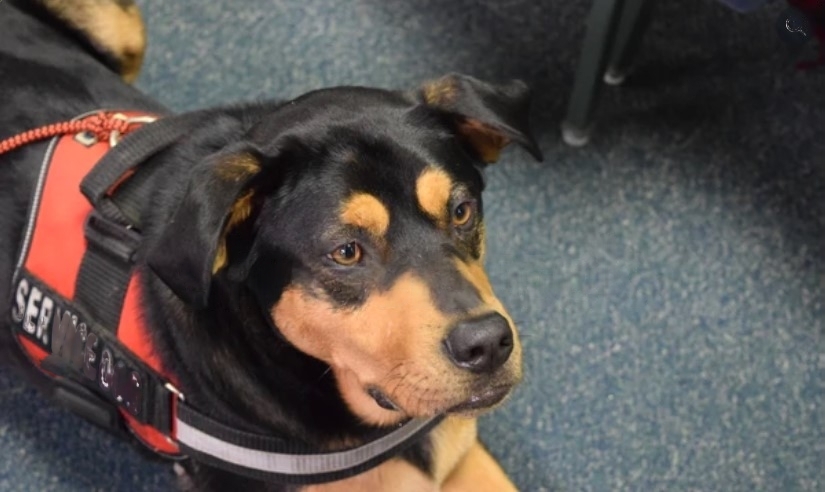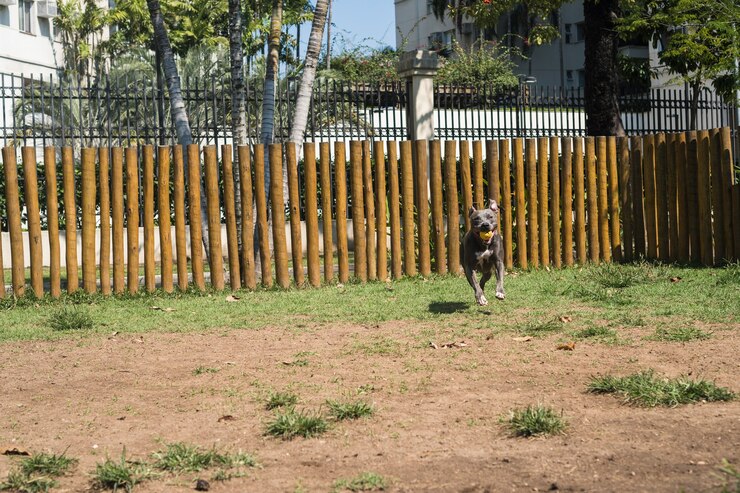OCD Service Dog


Obsessive-compulsive mental disorder, commonly known as OCD, is a mental health disorder that affects many individuals across the United States. The compulsions and cycles of OCD may be difficult for many individuals to break out of as they live their daily lives, but service dogs are able to help by providing redirection and comfort.
Our article helps you understand more about how OCD affects individuals and how an OCD service dog may help an individual go about their daily tasks with greater ease.
What Is OCD?
The International OCD Foundation defines the issue of obsessive-compulsive disorder as a form of mental health disorder which is characterized by a cycle of obsessions and compulsions. Individuals with OCD may experience unwanted intrusive thoughts, images, or urges that result in distress or unpleasant features. At the same time, compulsions occur as individuals attempt to decrease distressed feelings and get rid of the obsessions they may be feeling.
OCD is typically treated with a combination of cognitive behavior therapy or other therapies and medication. Some individuals also include holistic or more natural treatments in their care plans as needed, such as yoga and meditation.
Individuals with severe OCD may also find additional support with the help of a service dog. When combined with a treatment plan and overseen by a medical professional, the addition of an OCD service dog to someone’s care plan may significantly improve relief from the symptoms of OCD and help an individual enjoy a greater quality of life.
What Kind of Service Dog Helps With OCD?
There are many different types of service dogs, such as mobility, guide, and medical alert service dogs, and the specific type of service dog that helps with OCD is known as a psychiatric service dog (PSD). In addition to mental disorders like OCD, psychiatric service dogs may be trained to help with conditions such as anxiety, depression, PTSD, and bipolar disorder. Skills and tasks that PSDs learn are generally dependent on the disability that they are trained to assist with.
Tasks That OCD Service Dogs Perform
OCD service dogs may perform a range of different tasks that help relieve the symptoms of their owner’s OCD. We list some of the most common tasks that OCD service dogs perform below:
- Grounding, in which the service dog helps distract and refocus their owner from anxiety-inducing or distressing, obsessive thoughts
- Interruption of negative behaviors or compulsions
- Reassurance and comfort, something that helps the service dog’s owner feel more at ease and distractions them from any unpleasant thoughts
- Medication and water retrieval
- Opening and closing doors, turning lights on and off, checking rooms, and helping guard or protect their owner as needed in the public
- Applying deep pressure therapy on their owner to reduce panic attacks or other serious mental health symptoms
- Medical alert or reminder tasks that help the service dog owner make it to a safe space and feel more confident when out and about in public
It’s important to note that OCD service dogs may be trained to perform a variety of tasks dependent on their owner’s needs. If you need tasks or skills in your OCD service dog that aren’t listed here, it doesn’t mean it’s impossible to find a dog to perform these for you – your dog might simply need additional training.
How Much Do OCD Service Dogs Cost?
Service dogs, including OCD service dogs, tend to be quite expensive, and the average cost for these working pups ranges between $17,000 and $40,000. It may be possible to access scholarships or foundations that provide financial assistance, or an OCD service dog might be partially covered by your insurance, as service dogs are sometimes considered medical equipment.
Can You Train Your Own OCD Service Dog?
If you find that adopting a fully trained OCD service dog is cost-prohibitive, you may be able to train your own OCD service dog. At-home training tends to be cheaper, but it does take more time. However, you are able to build a great bond between you and your psychiatric service dog as you work to train them to help with the tasks you need.
Make sure that you consult plenty of training resources when undertaking this task, that you have a realistic timeline, and that you ensure the dog you are training has the attitude and skillset available to be a helpful service dog (they shouldn’t be aggressive, anxious, or have behavioral issues in public in any way for the safety of both you and others).
Adding an OCD Service Dog to Your Care Plan
OCD service dogs are often fantastic tools when added to an individual’s existing OCD care plan. The companionship these working dogs offer, combined with the physical health benefits that caring for a dog provides, and the tasks that OCD service dogs complete for their owners is often essential in helping someone manage their OCD.
If you are considering adding an OCD service dog to your care plan, speak with your therapist or doctor about how you believe a psychiatric service dog might benefit your specific situation
Additional:









Leave A Comment